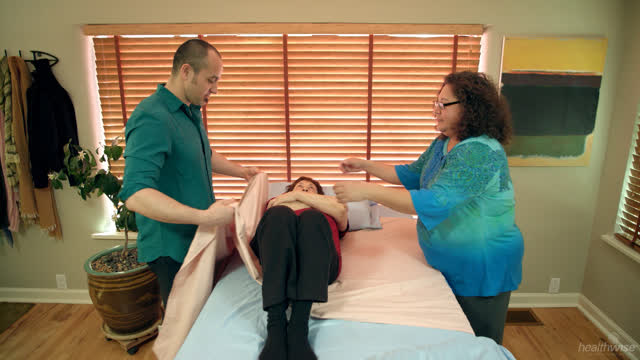Caregiving: Skin Care for Immobile Adults
Topic Overview
As we get older, our skin gets more thin and dry, so it is easier to damage. The chance of skin damage is higher for people who can’t move much and who spend most of their time in bed or in a wheelchair. The skin can develop rashes and sores, especially pressure injuries. These sores are caused by constant pressure, which can limit the blood supply to the skin.
Skin also can be damaged by sweat, feces, or urine, making pressure injuries more likely and harder to heal.
You can help protect the skin of the person you’re caring for by checking it every day and by being careful about cleaning the skin. It’s also important to be careful when turning the person in bed.
Check the skin for problems
Check the person’s skin every day for pressure injuries, especially around bony areas. It’s easiest to do this when you help the person bathe and dress. The most common places for these sores are the back of the head and ears, the shoulders, the elbows, the lower back and buttocks, and the hips. Sores also can form on the inner knees and the heels.
When a pressure injury forms, the skin temperature can be different than nearby skin. It might be warmer or cooler. The skin can feel either firmer or softer than the rest of the skin.
Also look for rashes, especially in the groin area. This is very important for people who have problems controlling their bladder or bowels and wear adult protective underwear.
Let the person know why you’re checking the skin. Keep the person’s body covered except for the area you are checking. This will help the person stay warm and also will respect his or her dignity.
Prevent pressure injuries
You can prevent pressure injuries by carefully turning the person every 2 hours. It relieves the pressure that can be placed on an area of the body when a person doesn’t move for a long time.
Let the person’s doctor know if you see pressure injuries. The doctor or nurse may give you some advice about how to treat minor sores at home. Serious sores need more medical treatment.
You may be able to use devices that help prevent pressure injuries. These include special cushions and mattresses. But they don’t take the place of turning the person.
Keep the skin clean and moist
Help bathe the person as often as needed to be clean and comfortable.
- Use gentle soap.
- Use warm (not hot) water.
- Wash gently with a washcloth.
- Pat the skin dry rather than rubbing. You also can offer the person a terry cloth robe. Terry cloth is a type of fabric often used for towels. It can help gently dry the skin.
Use moisturizing creams or lotions to keep the skin soft. If the skin is very dry, use a protective barrier cream, lotion, or ointment. These include over-the-counter lotions such as CeraVe and TriCeram. Some lotions are available by prescription.
Don’t put moisturizers in creases and folds, such as those under the breasts and in the groin or on the stomach. These areas are already moist. More moisture can lead to rashes and infections.
A humidifier may help prevent dry skin. Make sure to clean the humidifier as directed. This can prevent mold, fungus, or bacteria from forming in the machine.
Follow some other tips for skin care
- Good nutrition and plenty of fluids help the skin stay healthy and heal if it’s damaged. Provide a healthy diet, with lots of protein and fruits and vegetables. Offer the person plenty of water.
- When washing clothing and sheets, use mild detergents. Don’t use fabric softeners.
- Try to have the person wear clothing with soft fabrics, such as cotton (rather than wool).
Current as of: April 1, 2019
Author: Healthwise Staff
Medical Review:Kathleen Romito MD – Family Medicine & Gayle E. Stauffer , RN – Registered Nurse
This information does not replace the advice of a doctor. Healthwise, Incorporated, disclaims any warranty or liability for your use of this information. Your use of this information means that you agree to the Terms of Use. Learn how we develop our content.






